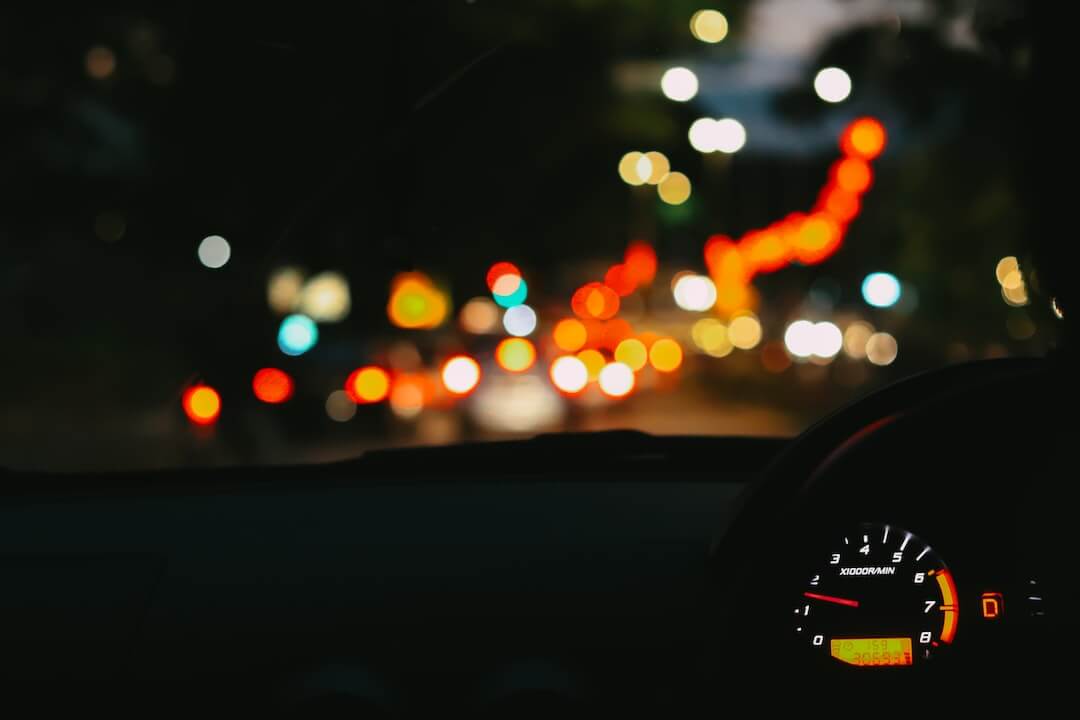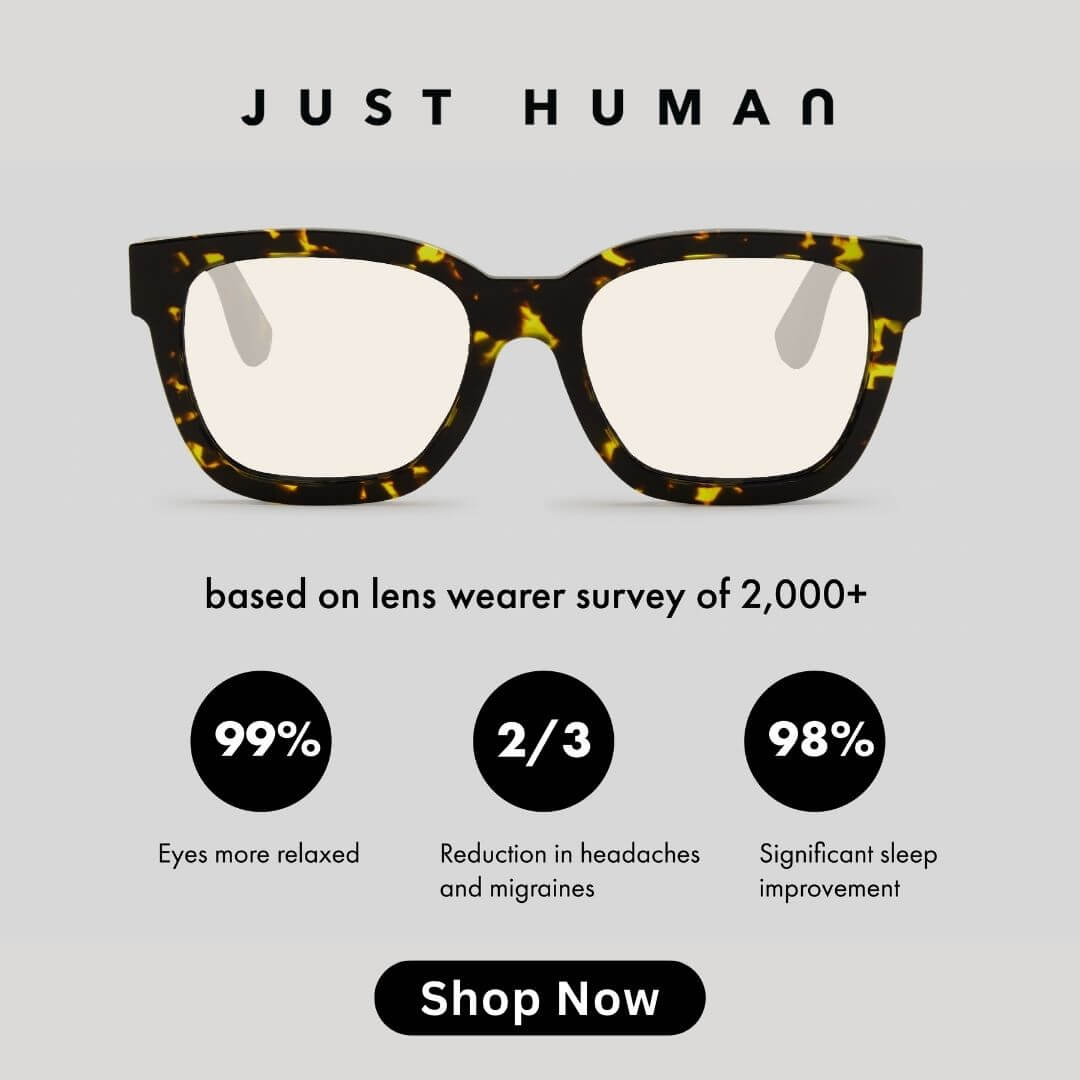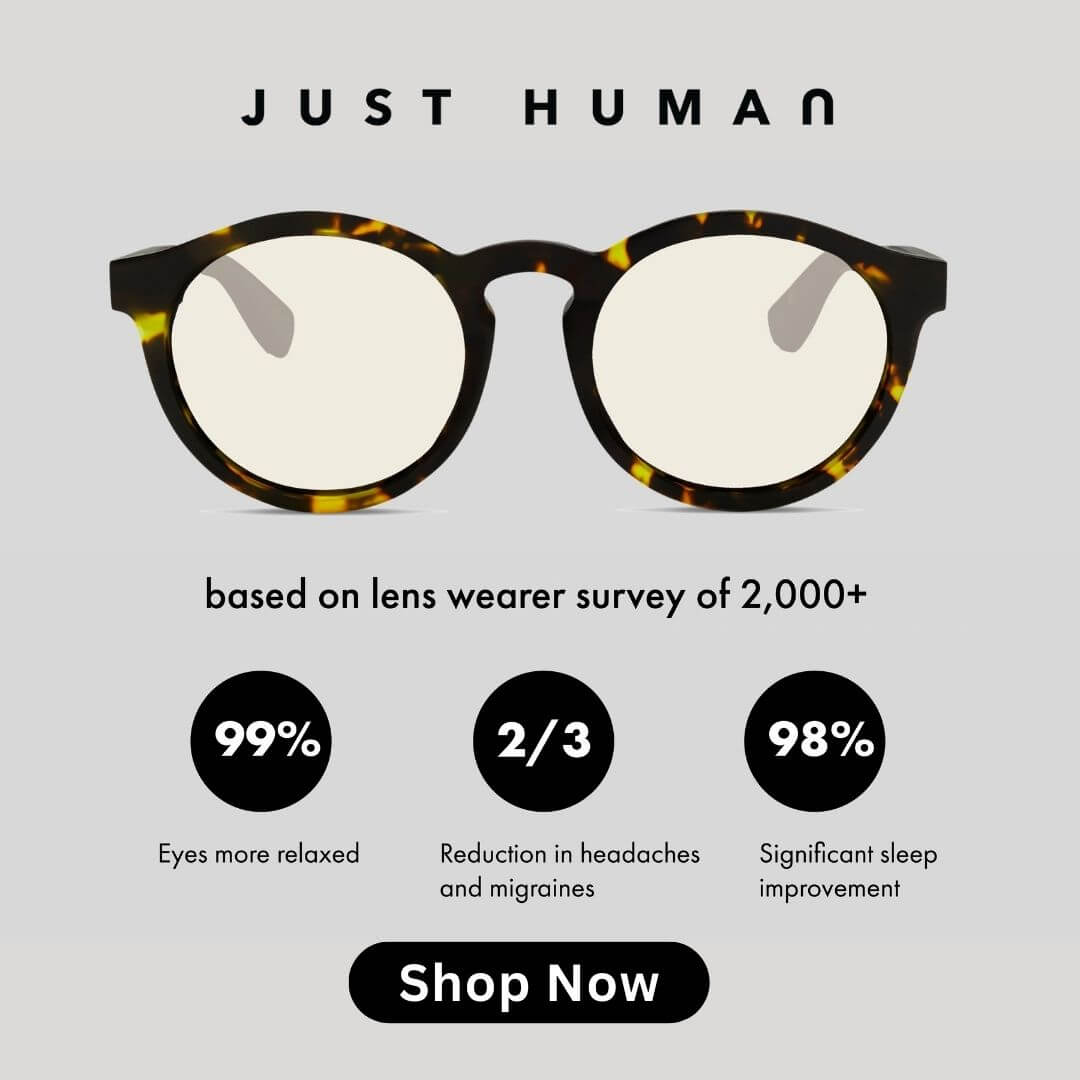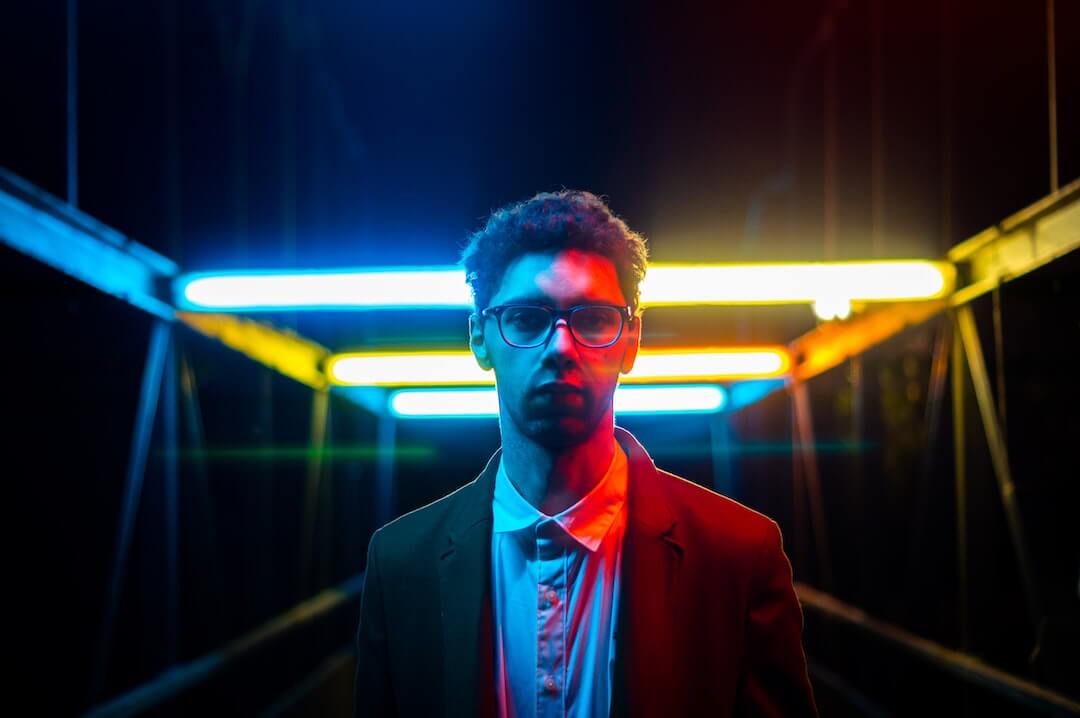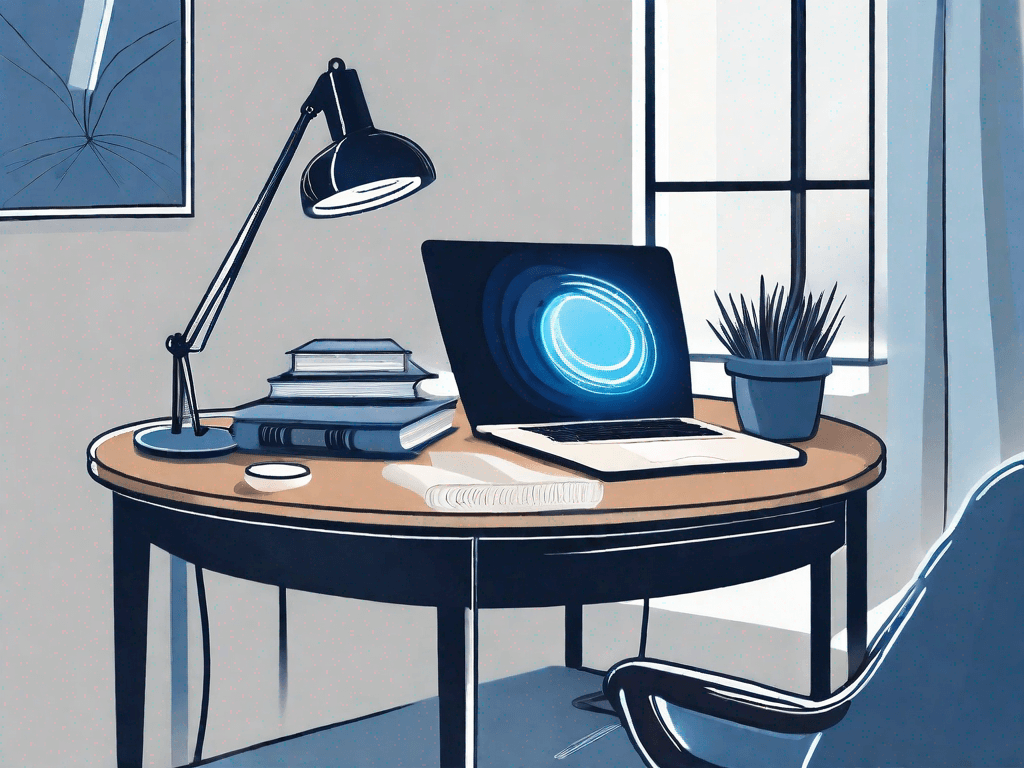Do Blue Light Glasses Help with Night Driving?
Do blue light glasses help with night driving?
With increased exposure to digital screens and the need for better visibility when behind the wheel at night, it's no wonder that many are turning to blue-light glasses as an alternative solution.
In this blog post, we'll look at the potential benefits of blue-light glasses for nighttime drivers and any associated risks. Also, find out where you can buy the highest quality blue-light glasses specifically designed for safe nighttime driving.
So if you're looking for answers on: do blue light glasses help with night driving - keep reading.
Table of Contents
How Do Blue Light Glasses Help with Night Driving?
Blue-light glasses block blue light that can lead to eye strain and fatigue, which is emitted from digital screens as well as natural blue light from sunlight, headlights, and streetlights.
Natural blue light, both from sunlight and digital screens like phones, computers and TVs, can be a source of eye strain.
Headlights and street lamps at night can create a glare that impairs one's vision, but wearing these glasses may help to block blue light and filter some of the potentially damaging blue wavelengths.
By wearing blue light blocking glasses while driving at night, you can reduce glare and improve visibility and reduce exposure by filtering out some of the harmful blue wavelengths.
How do night driving glasses work?
The benefits of wearing blue light blocking glasses while driving at night include improved vision clarity and reduced eye strain caused by excessive exposure to bright lights. This helps keep your eyes comfortable so you don't experience any headaches or blurred vision during long drives after dark.
These lenses may help with color perception since they allow for more accurate colors when looking into the distance on a dark road or highway and can act as a safeguard against potential harm to your eyes from the bright light of night-time driving, by blocking out some of the hazardous UV rays.
Although there are no major risks associated with wearing blue light blocking glasses as night glasses, beyond those related to general eyewear use such as scratches, it is worth noting that these night glasses will not provide a foolproof solution against all sources of glare or protect from every kind of lighting condition.
On foggy or cloudy nights, when the sun is obscured by clouds, blue-light blocking glasses may not be sufficient to ensure clear visibility while driving - even if they are worn. Also, if someone has been suffering from nighttime blindness or other vision impairments then these lenses might not completely restore their ability to drive safely under certain circumstances.
You should consult your eye doctor even though they could still offer some relief from uncomfortable symptoms like headaches caused by prolonged exposure to bright lights after dark.
Blue-light blocking glasses can help reduce eye strain and fatigue when driving at night, allowing for a more comfortable journey. Comprehending the nature of blue-light glasses can assist in determining if they are suitable for one's requirements.
For those who find themselves struggling to see in dimly lit settings, blue-light glasses may be of assistance as they can help reduce glare while driving at night and improve visibility.
If you wear sunglasses specifically designed for nighttime use they could be beneficial in reducing the intensity of headlights while on the road and increasing contrast between lights and shadows, thereby making objects easier to distinguish even in darkness.
Blue-light filters are becoming increasingly popular among drivers who find themselves on the road at night for improved night vision. If you're having trouble driving at night the question is what types of blue-light glasses actually help with night driving?
Yellow-Tinted Glasses versus Clear Blue Light Blocking Glasses: Learn the Difference
Yellow-Tinted Glasses:
The original lens technology for preventing blue-light come with yellow lenses that filter out harmful high energy blue-light from the visible light spectrum. This helps improve clarity when driving at night, improve nighttime driving and improve night vision.
Clear Blue Light Blocking Glasses:
A new version have clear lenses with a blue-light anti-glare coating but they don't offer any improvement in clarity compared to regular glasses when driving at nighttime.
If you're looking for improved vision while behind the wheel after dark then these newer versions may not be your best bet.
So whether or not you decide to invest in a pair of blue-light glasses really depends on what type of driver you are and what kind of results you expect from them – if all you want is protection from digital device radiation then go for it.
If improved vision while navigating dark roads at night is your goal then an older model with yellow lenses might be better suited for your needs
What are Blue Light Glasses and Do Blue Light Glasses Work?
Blue-light glasses are yellow-tinted lenses that filter blue light emitted from digital screens, such as computers, phones, and tablets.
Blue-light can have a range of detrimental impacts on wellbeing, such as:
- sleep disturbances,
- migraines,
- ocular discomfort and
- exhaustion.
Filtering blue light can reduce digital eye strain from high-energy blue-light shielding one's eyes from the hazardous consequences of extended exposure to blue-light.
The yellow lenses reduce blue-light by filtering harmful high energy visible (HEV) blue rays from the visible light spectrum through a melanin pigment in the lens while still allowing beneficial natural sunlight into your eyes.
They should come with an anti-glare coating to reduce glare and strain on your eyes.
The yellow tinted lenses also improve contrast and depth perception when driving at night or in low-light conditions.
What Does the Research Say: Do Blue Light Glasses Help with Night Driving and Night Vision
Research around 'do blue light glasses help with night driving' revealed that they can assist in reducing eye strain, by shortening the period of time needed for our eyes to adjust between different brightness levels when transitioning from bright headlight beams and led lights to dark roadsides during night-time driving.
This improved adaptation rate is believed to be due partly because yellow-tinted lenses allow more natural sunlight into our eyes making it easier for us see clearly even under dim lighting conditions like street lamps or car headlights at night time hours .
Evidence suggests that wearing blue light glasses may even give drivers a leg up on the roadways late at night or early morning hours when fewer people are around, as they increase visibility and clarity in low-light environments. This gives motorists more time to react quickly if needed due to improved adaptation rates, allowing for greater accuracy and reaction times while driving.
Overall, wearing blue light glasses offer numerous advantages both physically and mentally when it comes to navigating through dark roads during nighttime hours and protecting your eyes against the strain from oncoming headlights.
These benefits include:
- enhanced clarity
- better depth perception
- reduced eye fatigue
- quicker reaction times
- added protection against long-term damage caused by excessive exposure to digital devices' HEV radiation emissions
Blue blocking glasses are an awesome choice for lessening eye strain and exhaustion, as well as shielding your eyes from the damaging impacts of blue-light and can also offer additional benefits when driving at night that should not be overlooked.
If you're looking for sustainable luxury eyewear with blue light lenses try
Just Human's Blue Light Blocking Glasses
What Are the Benefits: Do Blue Light Glasses Help with Night Driving?
Blue-light glasses while driving at night can provide a number of benefits.
Blue-light is scattered more easily than other wavelengths, which means that it reflects off of headlights and streetlights more readily.
This can cause glare and reduce visibility on the road, leading to eye strain and fatigue. Overall, there are numerous advantages associated with blue-light glasses while driving at night:
- reduced eye strain and fatigue due to lessened reflection and scatter
- improved contrast and color recognition
- protection against UV rays
- increased focus and concentration
Blue-light glasses may be advantageous for night drivers, aiding in lessening glare and enhancing visibility.
Prior to settling on whether or not blue-light glasses are suitable for night driving, it is essential to evaluate any possible dangers that may be associated with them.
Do Blue Light Glasses Help With Night Driving: What are the Risks?
For nighttime driving, blue-light glasses can be a great method for decreasing eye fatigue and enhancing visibility.
If you wear blue-light glasses the most important risk is that the lenses may not be properly fitted for optimal protection against blue-light.
Also, if they are too tight or too loose, they can cause discomfort and even impair your vision.
It’s also possible that the lenses could become scratched if you don’t take proper care of them when cleaning them or storing them in your car.
Though wearing blue-light glasses while driving in the dark may bring a sense of relief from eye strain, it's still important to remain vigilant and take extra precautions.
Make sure you keep your dashboard lights dim and low beam headlights on as much as possible when driving at night to improve night vision, and adjust speed accordingly until your eyes have had sufficient time to acclimate.
Where Can I Buy Blue Light Glasses for Night Driving?
Blue-light glasses for night driving are available from a variety of sources.
Many eyewear stores and online retailers offer blue-light lenses specifically designed to reduce the glare from headlights and streetlights while driving at night.
These glasses come in a range of styles, colors, and price points, so there’s something for everyone.
For those who want the latest technology, Just Human designs and develops a proprietary blue-light lens that uses a melanin lens to filter out 17x to 23x more harmful blue-light wavelengths than traditional blue-light lenses.
The yellow lenses is similar to the melanin pigment in our eyes.
Clear lenses that filter blue-light are not as effective at filtering blue-light. The additional glare coating also helps protect against eye strain caused by long hours behind the wheel.
If you’re looking for an affordable option, many drugstores carry basic blue-light blocking sunglasses with polarized lenses or tinted frames that can help reduce glare without breaking the bank.
For a bit more money, you can find higher quality versions with better optics and greater protection from UV rays.
For drivers who prefer prescription glasses over contacts or wear sunglasses when driving at night, several brands make custom-fit blue-light lenses that provide superior vision correction as well as anti-glare protection during nighttime drives.
This is especially beneficial if you wear prescription glasses since they don’t typically come with built-in anti-glare features like regular single vision glasses do.
When shopping for blue-light glasses for night driving it is important to consider your needs carefully before making any purchase decisions. Research different brands and products to find the most suitable option that fits your budget.
FAQs: Do Blue Light Glasses Help With Night Driving and Prevent Night Blindness?
What is the difference between blue-light glasses and night driving glasses?
Blue-light glasses are intended to decrease the amount of blue-light that reaches your eyes from digital screens like computers and phones, thereby helping protect against symptoms such as eye strain, headaches, and sleep disruption caused by extended exposure to this type of light. They help protect against eye strain, headaches, and sleep disruption associated with prolonged exposure to blue-light.
Night driving glasses on the other hand are specifically designed for night time driving by reducing glare from headlights and streetlights while improving contrast in low-light conditions. The lenses used in these glasses also block out harmful UV rays which can cause damage to your eyes over time.
Are there glasses to help with night driving?
Yes, there are glasses designed to help with night driving. Blue-light blocking lenses can reduce glare from oncoming headlights and streetlights while improving contrast and visual acuity.
Some blue-light glasses feature a UV filter, providing extra protection from the sun's hazardous rays for improved ocular comfort.
Improve your vision and night driving with blue light glasses
Do blue light glasses help with night driving? Yes, they are a great way to help improve vision for your night driving. They reduce eye strain and glare while allowing you to focus on the road better.
Blue light glasses could be advantageous for improved sight and comfort when driving at night. Do some research online or visit an eye doctor near you for more information about whether blue-light glasses help with night driving and might be right for you.
If you're having trouble driving at night and looking for a solution to reducing glare and strain on your eyes while driving at night then try blue light glasses. They provide protection from harmful UV rays and help improve visibility in low-light conditions.


